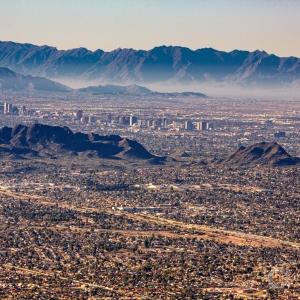The Stream, July 15, 2020: Torrential Monsoon Rains Flood a Third of Bangladesh
The Global Rundown
Officials say a third of Bangladesh is underwater after a wave of torrential monsoon rains. Environmental groups in Michigan urge the state attorney general to stop Nestle from taking huge amounts of state water at minimal cost. On farmland across the U.S., absentee land ownership hampers efforts to protect land and soil. As Ethiopia prepares to fill the reservoir behind the Grand Ethiopian Renaissance Dam, the latest round of talks over the project ends in another deadlock. Criticism of China’s Three Gorges Dam mounts as the country experiences its worst flooding in decades.
“One of the major justifications for the Three Gorges Dam was flood control, but less than 20 years after its completion we have the highest floodwater in recorded history. The fact is that it cannot prevent these severe events.” –David Shankman, a geographer with the University of Alabama, in reference to the failure of the Three Gorges Dam to stop China’s worst flooding in decades. The dam, which was built to help manage the Yangtze River, has not stopped parts of the Yangtze and its tributaries from reaching record-high water levels over the past several weeks. Government officials, however, say the dam and other reservoirs have played a key role in recent flood control. Reuters
Latest WaterNews from Circle of Blue
Ghana Faces ‘Triple-Edged Problem’ as Covid-19 Cases Rise — The pandemic’s health crisis is spilling over into the economy and politics of Ghana.
HotSpots H2O: Embattled Northwest Syria Sees First Covid-19 Case — The first case of Covid-19 has been confirmed in northwestern Syria, sparking fears about the spread of the disease in the embattled region where water is scarce.
By The Numbers
1.5 million People in Bangladesh who were affected by recent monsoons. Officials say the flood has left a third of the country underwater but if the rain continues as predicted, that number could rise to about 40 percent over the next several days. Al Jazeera
10 to 15 percent Farm acreage in Iowa that isn’t profitable, according to data gathered by Peoples Company in Des Moines, Iowa. One solution to the problem, which is present in other states across the U.S., are “prairie strips.” Prairie strips, or small tracts of land running through fields filled with grasses and wildflowers, help to protect water and soil in farmland and capture carbon dioxide from the air. Huge amounts of farmland in the U.S. are rented out by landowners, however, and tenants can be reluctant to invest in environmental practices like prairie strips or cover crops. NPR
Science, Studies, and Reports
Environmental groups are urging Michigan Attorney General Dana Nessel to intervene in a long-standing battle over the use of Michigan groundwater by Nestle. In 2018, the company began pumping millions of gallons of groundwater each day at virtually no cost, outraging Michigan residents and environmental advocates. This week, the Michigan Citizens for Water Conservation (MCWC) presented a formal complaint against Nestle to the attorney general, arguing that Nestle’s operations have significantly changed streams in Osceola County, a violation of Michigan law. In response, a Nestle Waters North America spokesperson released a statement saying that the company conducted extensive environmental reviews before beginning operations. 9&10 News
On the Radar
The deadlock between Egypt, Ethiopia and Sudan over the Grand Ethiopian Renaissance Dam continues after a round of talks hosted by the African Union failed to expedite negotiations. Egypt and Sudan, who fear the $4 billion dam could disrupt their Nile water supply, are seeking a legally binding water-sharing agreement before the reservoir behind the dam is filled. Ethiopia announced plans to begin filling the dam by the end of the month, but stated they were willing to show flexibility as talks continue. Reuters
Kayla Ritter is a recent graduate of Michigan State University, where she studied International Relations and Teaching English to Speakers of Other Languages. She is currently based in Manton, Michigan. Kayla enjoys running, writing, and traveling. Contact Kayla Ritter





Leave a Reply
Want to join the discussion?Feel free to contribute!